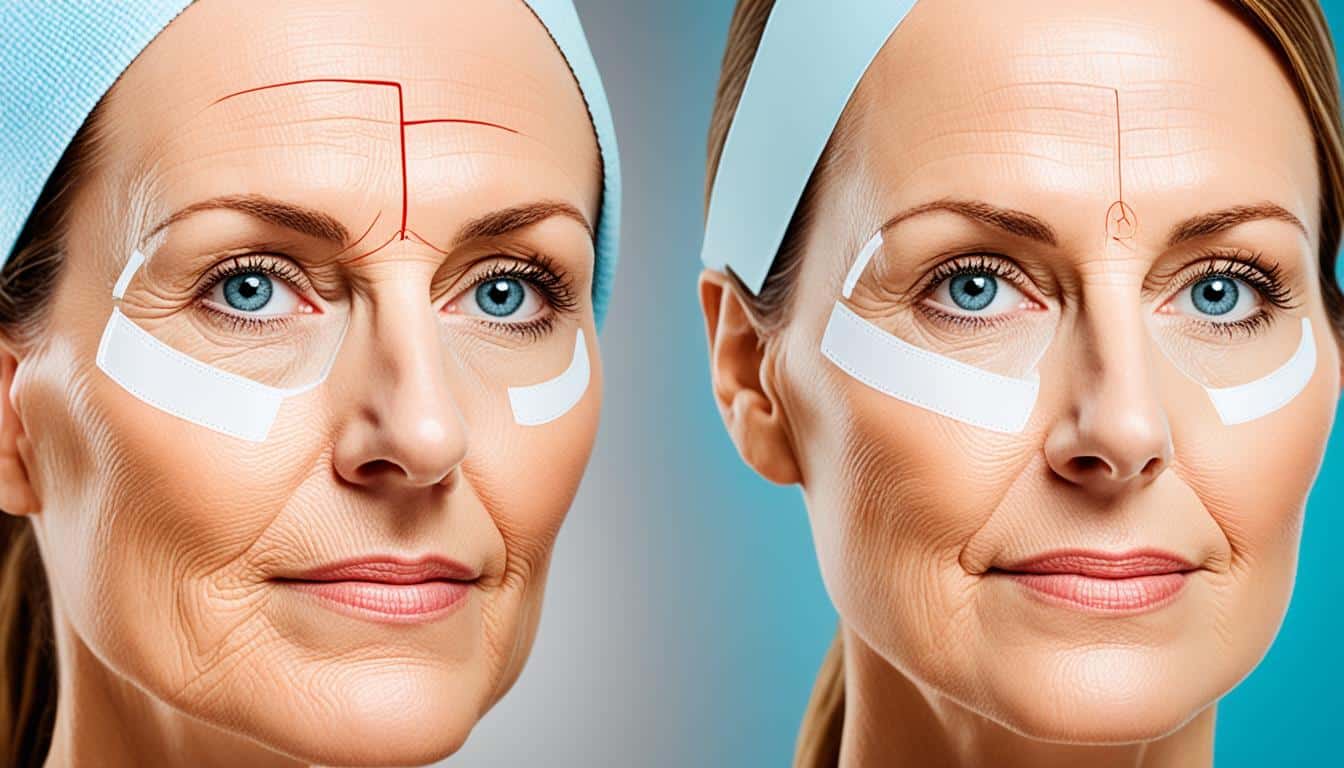Ever dreamed of a little nip and tuck but worried about the cost? You’re not alone. More people want cosmetic enhancements, leading to questions about tax deductions. With states like New Jersey charging a 6% “vanity tax” on plastic surgery, saving money on beauty treatments is a big concern.
The world of cosmetic surgery is always changing. In 2022, 76% of plastic surgeons saw more patients than before the pandemic. This “Zoom Boom” made people pay more attention to how they look, with 80% of facial plastic surgeons seeing more requests for camera-ready makeovers.
But, the cost of cosmetic procedures is high. The average surgeon fee in the U.S. is $5,377. This makes people wonder if they can deduct these costs on their taxes.
Before you think about saving on taxes with a new nose or tummy tuck, know the IRS rules. It’s important to understand the difference between medical needs and elective procedures. This difference affects if you can deduct your cosmetic surgery costs.
Key Takeaways
- New Jersey imposes a 6% tax on plastic surgery, expecting $25 million in annual revenue
- 76% of plastic surgeons saw increased patient interest post-pandemic
- The average surgeon fee for cosmetic procedures in the U.S. is $5,377
- 86% of cosmetic surgery patients are women
- Insurance typically doesn’t cover elective cosmetic procedures
- Understanding IRS guidelines is crucial for potential tax deductions
- Various financing options exist for those considering cosmetic surgery
The Rise of Cosmetic Procedures in the Digital Age
Cosmetic surgery has changed a lot in recent years. Video calls and social media have made people care more about how they look. This has led to more people getting reconstructive and cosmetic surgery.
Zoom Boom: Pandemic’s Impact on Plastic Surgery Demand
The COVID-19 pandemic made more people want cosmetic surgery. Being on video calls made them notice how they looked on screen. This led to a big increase in facial procedures, known as the “Zoom Boom.”
Popular Cosmetic Procedures and Their Costs
Cosmetic surgery costs vary a lot by procedure. Liposuction, facelifts, and breast augmentations are very popular. The surgeon’s fee is about $5,400 on average. But, you also have to think about anesthesia and the operating room, which can cost another $2,500 to $5,000.
Age Demographics of Cosmetic Surgery Patients
Adults between 40 and 54 are the most likely to get cosmetic procedures. They often want to look younger or better for work. It’s important to know all the costs of cosmetic surgery before you decide.
Is Cosmetic Surgery Tax Deductible?
Can you write off a nose job on your taxes? The answer is usually no. But, there are some exceptions you might not know about.
Medical Necessity vs. Elective Procedures
The IRS says there’s a big difference between needed procedures and ones done for looks. Health insurance also looks at this. If a doctor says you need a procedure, you might be able to deduct it. But, if it’s just for looks, you won’t get to deduct it.
IRS Guidelines on Cosmetic Surgery Deductions
The IRS is strict about cosmetic surgery deductions. You need to spend more than 7.5% of your income on medical costs. This is a tough rule. Most cosmetic surgeries don’t qualify.
Exceptions for Reconstructive Surgeries
But, there’s hope for reconstructive surgery. If you’ve had a mastectomy, burns, or need surgery for a birth defect, you might deduct costs. These surgeries are seen as medically necessary.
Even if you can’t deduct a facelift, knowing these rules helps with your health and money choices. Always talk to a tax expert to understand medical deductions better.
Financing Options for Cosmetic Procedures
Want to get a new look but worried about the cost? There are ways to make it easier. You can look into health insurance or payment plans.
Insurance Coverage: What’s Included and What’s Not
Think your health insurance will pay for your facelift? Think again. Most cosmetic treatments are not covered. But, some might pay for things like nose jobs or eyelid surgery if they fix a health issue. You’ll need to show it’s really needed, not just for looks.
Medical Credit Cards and Payment Plans
Medical credit cards can help you pay over time. But, watch out for high interest rates up to 26.99%. Some doctors offer their own payment plans that might be cheaper. Not many people itemize their expenses, so don’t hope for a tax break.
Personal Loans and Zero-Interest Credit Cards
If you have good credit, zero-interest credit cards are great. Personal loans have about 10.6% interest. Just remember, you can’t write off your trip to the plastic surgeon as a tax deduction. Pick your financing carefully – you want your new look to impress, not drain your savings!








